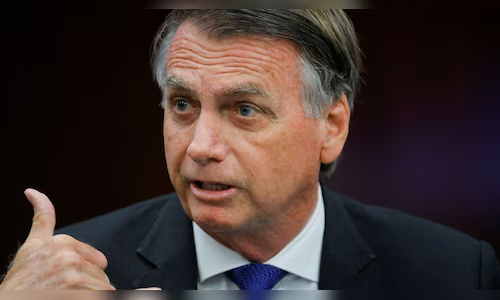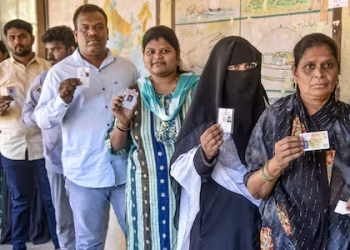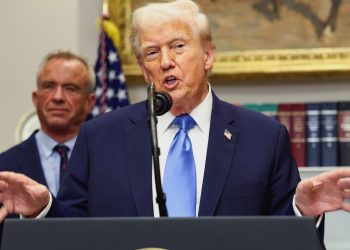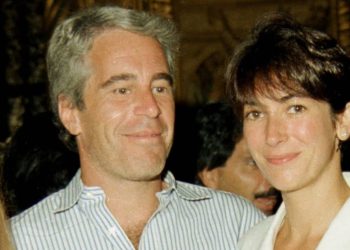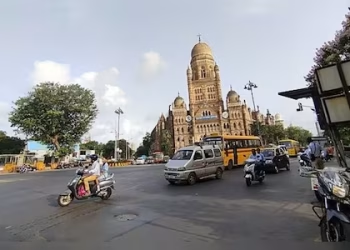The sentence was decided Thursday by a panel of five judges who supervised the case. Four of them voted for the conviction of Bolsonaro, accused of wanting to cling to power by preparing a military coup providing in particular the assassination of President Luiz Inacio Lula da Silva.
Although the accusations are liable to a maximum sentence of 43 years in prison, the judges took into account the age of Bolsonaro, 70, and his persistent health problems to determine the sentence.
Bolsonaro lawyers should appeal to his conviction. As a former head of state, he has the right to serve his sentence in a special establishment rather than in an ordinary prison, although the court did not specify where.
This case is considered a historic moment for democracy in a country that has experienced four successful strokes and many other unsuccessful attempts during its history. This is also likely to have ramifications in the country and abroad, likely to reshape the 2026 elections while provoking an additional back stick from Donald Trump, which has imposed American customs duties raised on many Brazilian products and sanctions against a judge of the Supreme Court in order to arrest the trial.
For the moment, the American president has not given clear indications on additional measures against Brazil.
“I watched this trial. I know him quite well, a foreign leader, he was a good one, I thought he was a good president of Brazil,” said Trump when he left the White House for a trip to New York. “This is exactly what they tried to do with me, but they did not reach it at all.”
The case of Bolsonaro stems from an investigation into the attempt at an insurrection of January 8, 2023 in Brasilia, where thousands of his supporters stormed federal buildings while exhorting the army to oust Lula a week after its entry into office.
The highest prosecutor in Brazil charged Bolsonaro and seven allies, including soldiers and ministers from his administration, coup d’etat and four other crimes. His lawyer argued that the prosecutors had failed to link him to the insurrection or to any plot against Lula, adding that the coup had never taken place.
Justice Alexandre de Moraes voted for the first time on Tuesday to condemn Bolsonaro, saying that there was “no doubt that there was an attempted coup”, and was joined by judge Flavio Dino. Judges Carmen Lucia and Cristiano Zanin considered Bolsonaro guilty of all the accusations on Thursday.
The only dissident was judge Luiz Fux, who voted to pay him from all accusations. Affirming that the committee had not competence, he also sought to cancel the case. Even if this offer failed, its arguments could support a possible call.
Bolsonaro, a former army captain, modeled his political approach so well on that of his American counterpart that he became nicknamed “the Trump of Tropics” during his unexpected ascent to the presidency of Brazil in 2018.
Comparisons only have been intensifying since the riots of 2023, which broke out following the Bolsonaro dissemination of conspiracy theories on electoral fraud and occurred almost two years to day after the attempted insurrection which followed Trump’s defeat in 2020.
Trump was then accused of having illegally conspired to hinder this election, but the prosecutors abandoned them after winning the 2024 competition, citing the policy of the Ministry of Justice prohibiting the chairman.
Bolsonaro bet on the help of his ally and his son Eduardo, a legislator, moved this year in the United States to put pressure on the White House so that she intervenes in favor of her father.
In July, Trump qualified the trial as “witch hunt” and then imposed customs duties of 50 % on Brazil. He also imposed sanctions in Moraes, the judge who supervised the case of Bolsonaro, and revoked his American visa.
But Brazil refused to give in. Moraes opened the trial by insisting that the sovereignty of the nation “will never be raped, negotiated or extorted”. Lula also castigated the American leader for trying to intervene in Brazilian affairs, while calling Bolsonaro and Eduardo as traitors to their nation.
The court, the government of Lula and the Brazilian banks are all preparing for new negative reactions from the United States as the trial is progressing, including possible sanctions against other judges of the Supreme Court.
Questioned Tuesday about Brazil, the white house press secretary Karoline Leavitt said that Trump saw it as a fight against “censorship” and that he “was not afraid to use economic power, the military power of the United States of America to protect freedom of expression in the world”.
The final verdict would make Bolsonaro the third of the last seven Brazilian presidents that are found guilty of crimes. Lula, who ruled Brazil from 2003 to 2010, was found guilty of corruption in 2017 and spent almost two years behind bars before the cancellation of his trial opens the way to a return to the presidency.
Although Bolsonaro insists that he will appear again next year, an immediate return is unlikely due to an eight -year political ban he received for having questioned the country’s electoral system before the 2022 election.
Investors and leaders of the centrist parties consider the trial as the moment he will finally have to appoint a successor, many being favorable to the governor of Sao Paulo, Tarcisio de Freitas, former Minister of the Government of Bolsonaro.
“Bolsonaro’s arrest ends up promoting a second option like Tarcisio,” said Felipe Arslan, CEO of Morada Capital. “You eliminate the chances of Bolsonaro to be eligible, and you have this second option which strengthens market optimism with the elections.”
The Brazilian markets reacted little to the conviction of Bolsonaro, which had been largely integrated even before the start of the trial. Even if an American response remains a risk, investors see little impact on broader economic perspectives: new sanctions are considered unlikely, and any measure would probably target individuals-perhaps even judges of the Supreme Court-rather than the economy of Brazil.
For the moment, Freitas has denied having intended to present himself, but has intensified his efforts to call on the base of the former president. He accused the “tyranny” court and described the trial as “vitiated” during a rally on Sunday.
He also called for legislation granting Bolsonaro a legal amnesty, an idea which gained ground in the lower chamber but which comes up against the refusal of the Senate and which would probably be the subject of constitutional disputes before the Supreme Court.
Bolsonaro’s efforts to keep control of the political movement he built have also fueled speculation that he could support a family member next year.
Eduardo expressed his interest in presenting himself if his father could not, although he is now in the face of potential criminal charges after the police accused him of jurisdiction before the trial.
Senator Flavio Bolsonaro – the eldest son of the former leader – and former First Lady Michelle Bolsonaro were also considered potential successors in the powerful conservative family.


